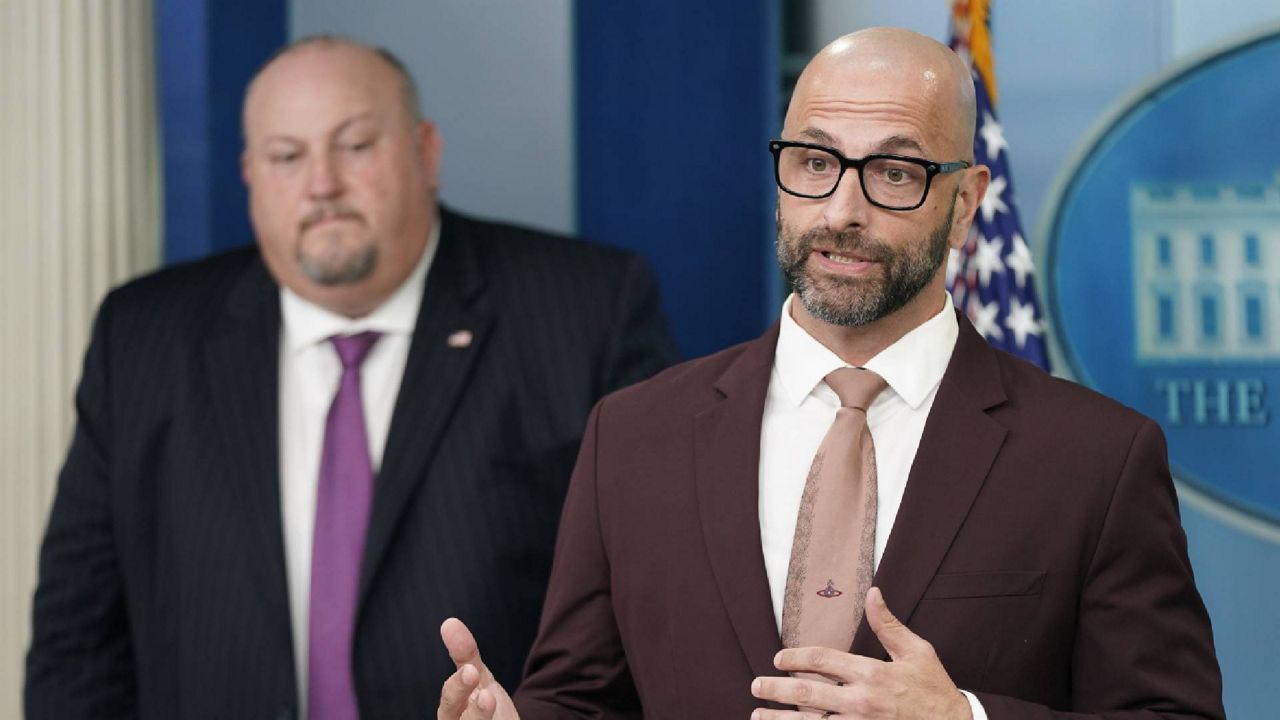The Biden administration’s top officials coordinating the monkeypox response said on Wednesday that they feel confident in the United States’ supply of vaccine but are still working to ensure the shots are accessible and encouraged for the 1.6 million Americans most at risk of catching the virus.
Monkeypox Coordinator Bob Fenton and Deputy Coordinator Dr. Demetre Daskalakis joined the White House briefing room to update their response efforts, also noting that the number of cases reported in the country each day is “trending downward.”
Fenton reiterated that the Biden administration has enough vaccines for the Americans most vulnerable to monkeypox, which most often causes rash, fever, body aches, chills and fatigue. People with more serious illness may develop lesions on the face and hands that can spread to other parts of the body.
The nationwide vaccine supply was boosted after the Food and Drug Administration approved an additional, intradermal method of vaccination that scales a single dose up to the equivalent of four to five doses.
About 70% of vaccines are being administered using the newer method, Fenton said.
“Our focus now is to reach the remainder of eligible populations where they are, at trusted locations and events across the country,” he added.
The goal is to get more shots in arms of the 1.6 million Americans most vulnerable to moneypox, which has most often affected men who have sex with men. About 460,000 doses have gone out so far, but Daskalakis noted that only includes data from about half of local jurisdictions.
The coordinators said one outreach method is the administration’s continued work with pride events around the country, most recently including more than 3,000 doses administered at Southern Decadence in New Orleans and nearly 4,000 at Black Pride in Atlanta.
“Now that supply is less of an issue, we need to make sure we focus on maintaining demand by making sure that people know that effective and safe vaccine is available for those that could benefit,” Dr. Daskalakis said.
Monkeypox typically requires skin-to-skin or skin-to-mouth contact with an infected patient’s lesions to spread. People can also become infected through contact with infected clothing or bedsheets.
The number of cases detected in the U.S. each week is “trending downward,” Dr. Daskalakis said.
“Places like New York, California, Texas and Illinois are all seeing significant declines in growth rates over the last month,” he explained. “Back in July, CDC estimated that it took eight days for cases to double nationwide. By mid-August, the doubling rate was 25 days, showing encouraging signs of progress.”
But cases are now increasingly being found in Americans who aren’t men who have sex with men, data also shows, and there is also an increasing racial disparity.
In the last week of August, the Centers for Disease Control and Prevention reported nearly 38% of cases among African-Americans and nearly 30% among the Hispanic or Latino population.
Dr. Daskalakis said the spread represents increasing close contact with people who have monkeypox outside of sex, such as household contact, plus a need to put equity at the forefront, including by making the vaccine as accessible as possible throughout the U.S.
The Associated Press contributed to this report.



